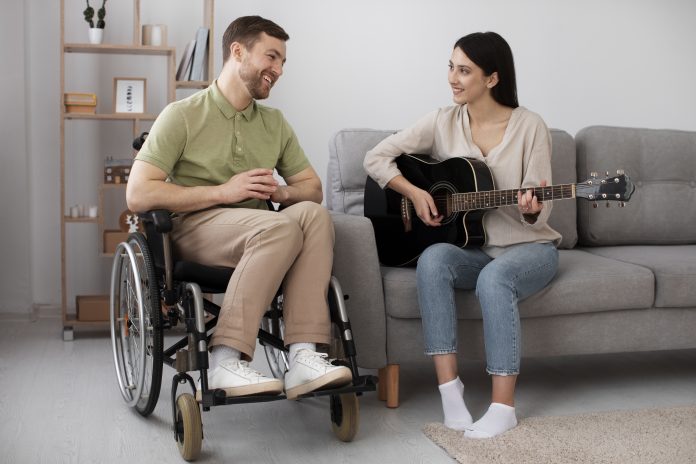Living with a disability often means navigating a unique set of challenges that can impact various aspects of life, from physical well-being to mental health. While traditional medical interventions play a crucial role in managing disabilities, alternative therapies have gained increasing recognition for their potential to enhance the overall quality of life for individuals facing these challenges. In this blog post, we will delve into the realm of alternative therapies, exploring their benefits and diverse approaches in supporting individuals with disabilities.
Understanding Alternative Therapies:
Alternative therapies encompass a wide range of practices that fall outside the realm of conventional medicine. These approaches often focus on holistic well-being, addressing the physical, emotional, and spiritual aspects of an individual. While they are not meant to replace traditional medical treatments, alternative therapies can complement existing interventions and offer a more comprehensive approach to disability management.
Types of Alternative Therapies:
- Yoga and Mindfulness: Incorporating yoga and mindfulness practices into the lives of individuals with disabilities can have profound effects on their physical and mental well-being. Adaptive yoga classes cater to various mobility levels, allowing participants to engage in gentle stretches, breathing exercises, and meditation. These practices promote flexibility, balance, and emotional resilience.
- Art and Music Therapy: Creative expression through art and music can be powerful tools for individuals with disabilities. Art therapy provides a non-verbal outlet for emotions, helping individuals communicate and process their experiences. Similarly, music therapy has shown positive effects on mood, cognitive function, and motor skills. Both forms of therapy can be adapted to accommodate different abilities and preferences.
- Equine-Assisted Therapy: Interacting with horses in a therapeutic setting, known as equine-assisted therapy, has shown remarkable results for individuals with physical, cognitive, and emotional disabilities. The rhythmic movement of the horse can improve balance and coordination, while the bond formed between the individual and the animal can boost confidence and emotional well-being.
- Acupuncture and Acupressure: Traditional Chinese medicine practices like acupuncture and acupressure involve stimulating specific points on the body to promote balance and alleviate symptoms. While acupuncture uses fine needles, acupressure applies pressure to these points. These therapies have been found to manage pain, reduce stress, and improve overall energy flow.
- Hydrotherapy: Hydrotherapy, or water-based therapy, utilizes the buoyancy and resistance of water to facilitate movement and exercise. Particularly beneficial for individuals with physical disabilities, hydrotherapy can improve muscle strength, flexibility, and cardiovascular health. Warm water also provides a soothing environment for relaxation and stress relief.
Benefits of Alternative Therapies for Individuals with Disabilities:
- Holistic Approach: Alternative therapies adopt a holistic approach, addressing not only the physical symptoms but also the emotional and mental aspects of disability. This comprehensive approach recognizes the interconnectedness of mind, body, and spirit, fostering overall well-being.
- Personalized Care: Many alternative therapies can be tailored to the individual’s specific needs and preferences. This personalized approach allows for a more targeted and effective intervention, considering the unique challenges and abilities of each person.
- Reduced Side Effects: Unlike some conventional treatments that may have side effects, many alternative therapies are non-invasive and have minimal adverse effects. This makes them particularly suitable for individuals who may be sensitive to medications or other medical interventions.
- Improved Quality of Life: By promoting physical health, emotional resilience, and a sense of empowerment, alternative therapies contribute to an improved quality of life for individuals with disabilities. These therapies offer tools and coping mechanisms that can be integrated into daily life, fostering a sense of control and self-efficacy.
Challenges and Considerations:
While alternative therapies hold promise for individuals with disabilities, it’s essential to approach them with careful consideration and in consultation with healthcare professionals. Not all alternative therapies may be suitable for everyone, and individual responses can vary. Additionally, some practices may lack scientific validation, emphasizing the importance of evidence-based approaches and informed decision-making.
Conclusion:
Exploring alternative therapies for individuals with disabilities opens up new possibilities for enhancing their overall well-being. By embracing a holistic and personalized approach, these therapies offer valuable tools for managing physical, emotional, and mental challenges. While acknowledging the benefits, it’s crucial to approach alternative therapies as complementary to traditional medical interventions, creating a well-rounded support system for individuals living with disabilities. Through continued research, collaboration between healthcare professionals, and an open-minded approach to holistic care, alternative therapies can contribute significantly to improving the lives of those facing the unique challenges of disabilities.











